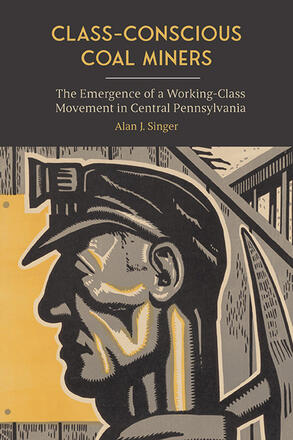
Class-Conscious Coal Miners
The Emergence of a Working-Class Movement in Central Pennsylvania
Alternative formats available from:
Multifaceted study of Pennsylvania's coal miners during the post-World War One era.
Description
Bituminous coal miners in Central Pennsylvania were among the most militant and class-conscious workers in the United States in the post-World War I era. Class-Conscious Coal Miners examines the development of working-class consciousness as they fought to sustain their union, jobs, communities, and work pejoratives, what they described as the Miner's Freedom, against mechanization and operator open shop drives in the 1920s. Their struggles brought them into conflict with coal companies, a pro-business federal government, and the business-unionist leadership of the United Mine Workers of America. After the collapse of the bituminous coal industry in Central Pennsylvania starting in the 1950s, working-class consciousness gradually diminished until, in the present century, there has been a marked shift toward political conservatism.
Alan J. Singer is Professor of Education at Hofstra University. He is the author of New York and Slavery: Time to Teach the Truth and New York's Grand Emancipation Jubilee: Essays on Slavery, Resistance, Abolition, Teaching, and Historical Memory, both also published by SUNY Press.
Reviews
"A fine-grained social history of the rebellious miners in Central Pennsylvania in the 1920s, Alan Singer's Class-Conscious Coal Miners brings us significant insights about radicalism and repression. Singer shows why miners have more in common with today's precarious workers, why mining communities in the coal fields were incubators for alternative views on political economy, and why they rebelled not only against coal operators but against their own union. In Singer's telling the 1920s become an incubator for the rebellious 1930s." — Rosemary Feurer, author of Radical Unionism in the Midwest 1900–1950
"Alan J. Singer has written a highly readable and original book that makes a major contribution to the history of its field and US history in general. Although a number of scholarly works exist about labor-related events that took place in central Pennsylvania during the 1920s, none do what he has done or ask the questions he has. His goal was not simply to relate detailed information but to clarify how and why existing conditions created a working-class-conscious movement that potentially challenged business unionism, the structure of the nation's coal industry, and the direction of the country."—Mildred Allen Beik, author of The Miners of Windber: The Struggles of New Immigrants for Unionization, 1890s–1930s